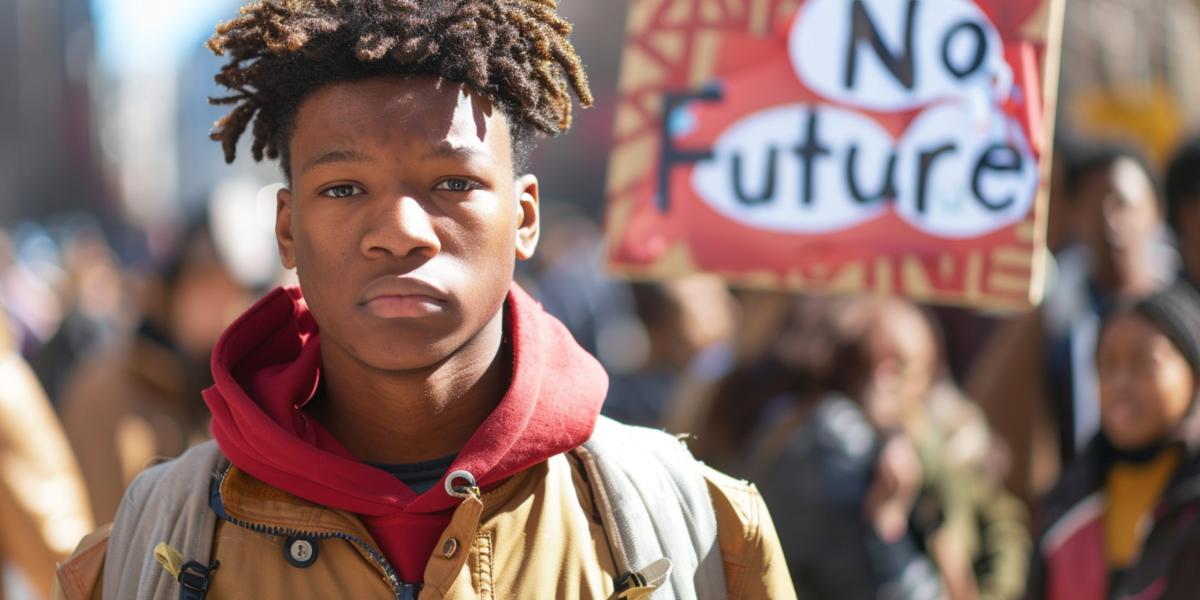Climate Anxiety: A Condition Born from Systemic Failures
The phenomenon of climate anxiety, also known as eco-anxiety, eco-grief, or climate doom, has gained significant attention in psychological and psychiatric research circles. Major contributors to this field include the Program on Climate Change Communication at the Yale School of the Environment. Reports indicate that mental health professionals are witnessing an increase in patients displaying symptoms associated with climate anxiety, but there remains a lack of clarity regarding effective treatment methods. While climate anxiety is not classified as a formal medical diagnosis, it encapsulates a range of psychological symptoms triggered by ongoing climate change, particularly among young adults aged 16-34, who seem to be the most affected demographic. Some professionals suggest that climate anxiety could even heighten the risk for conditions like post-traumatic stress disorder (PTSD), particularly in vulnerable groups, including indigenous populations who are directly facing the consequences of climate shifts.
Symptoms of climate anxiety encompass feelings of helplessness regarding climate change, overwhelming worry about the future, insomnia due to climate-related stress, anger, guilt, and avoidance behaviors surrounding environmental discussions. Notably, young adults today are increasingly voicing fears about future life choices, such as the decision to have children, stemming from concerns about the planet’s sustainability. This apprehension, shared among many in the Generation Z and Millennial cohorts, raises questions about societal implications and potential long-term impacts on population trends. The emotional toll of climate anxiety has led many young people to grapple with existential questions that could influence their life trajectories and societal structures.
Interestingly, while mental health experts emphasize that some level of concern about climate change is healthy, it becomes problematic when such worry becomes overpowering. The Yale findings that 64% of Americans express worry about global warming highlights a collective consciousness that could inspire proactive measures for climate action. Yet the delicate balance between healthy concern and debilitating anxiety remains a significant focus for clinicians. Statistics reveal that a notable percentage of Americans experience symptoms associated with climate anxiety, with many indicating a desire for professional support, thereby reflecting a growing acknowledgment of the mental health implications linked to environmental changes.
Efforts to address these increasing mental health concerns have been initiated, particularly in regions like Vermont, where programs such as the Vermont Collaborative for Practice Improvement and Innovation (VCPI) propose courses to help professionals in care-oriented fields develop resilience to climate-related stress. These courses aim to equip mental health professionals, educators, social workers, and others with the necessary tools to both manage their own emotional responses to climate crises and support those experiencing similar distress. As awareness of climate anxiety expands, institutional backing from educational and governmental entities seeks to ensure that helping professionals are well-prepared to assist clients grappling with their experiences of climate grief and anxiety.
The establishment of specialized training for those in helping professions raises additional questions about the prevalence and implications of climate anxiety in society. The need for support systems for mental health professionals themselves suggests not only the widespread impact of climate-related stress but also points to potential societal dynamics in need of scrutiny. Critics might argue that the concept of climate anxiety could be weaponized or exploited, fostering a culture of fear that could motivate compliance with certain environmental regulations or societal expectations. Such concerns about the interplay between public health narratives and climate change responses may contribute to a growing skepticism regarding who gets to define the anxieties that are deemed legitimate.
Lastly, a deeper investigation into the origins and meanings behind climate anxiety opens avenues for individual reflection and personal agency. As global entities emphasize climate change as an existential crisis, individuals may grapple with their responses based on personal fears, not solely what is dictated by societal narratives. This personal interface between aging, environmental responsibility, and mental health illustrates a complex psychological landscape deserving of individual consideration. The variance in personal reaction to climate change underscores the necessity for sensitivity in understanding individual experiences, promoting a more nuanced discourse that acknowledges individual autonomy in confronting existential anxieties.
Share this content:












Post Comment